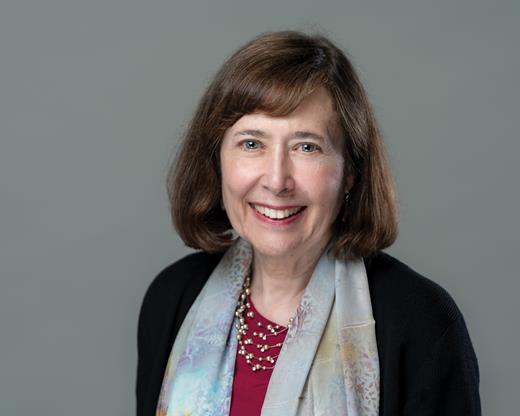“Biology limits the number of maternal children you can have, but there are far fewer limits to how many scientific children you can have.” — Connie J. Eaves, PhD1
This past March, we lost an extraordinary scientist, a builder of communities, an enabler of research, and — beyond all else — a passionate and generous mentor. A treasured colleague and friend, Connie Eaves, PhD, possessed remarkable clarity of thought and hypothesis. Dr. Eaves, or Connie to those of us who were fortunate to have gotten to know her, approached scientific exploration with experimental rigor, and she communicated her scientific discoveries with precision. And she expected the same precision in language from her peers and mentees.
Connie was a recipient of the American Society of Hematology’s (ASH) 2018 E. Donnall Thomas Prize. Named after the late Nobel Prize laureate and ASH past president E. Donnall Thomas, MD, the award was bestowed upon Connie in recognition of her pioneering research achievements in hematology. She was a professor in the Department of Medical Genetics and the School of Biomedical Engineering at the University of British Columbia, and a distinguished scientist at BC Cancer’s Terry Fox Laboratory. She received her PhD from the University of Manchester, UK, under Professor Laszlo Lajtha, MD, PhD, and completed postdoctoral studies at the University of Toronto under Professors James Till, PhD, and Ernest McCulloch, MD. In 1973, Connie initiated her independent research program at the BC Cancer Institute.
Throughout her career, Connie was an enthusiastic builder of communities and enabler of research: She cofounded the Terry Fox Laboratory in 1981 with her husband Allen Eaves, MD, PhD; she led numerous provincial, national, and international initiatives in hematology and oncology; and she and her team pioneered methodologies to enrich and examine stem cells from blood and marrow or mammary tissues. The astonishing impact of her research career is reflected by numerous honors and awards. She was elected to the Royal Society of Canada in 1994. She received the Canada Gairdner Wightman Award and was inducted into the Canadian Medical Hall of Fame in 2019. She was made an Officer of the Order of Canada and a fellow of the Royal Society in 2021. And, in 2022, she was elected to the U.S. National Academy of Medicine. The pioneering insights generated from her research will forever influence our understanding of tissue growth and homeostasis, bone marrow transplantation and treatment, and cancer formation.
Connie’s passion for supporting scientists — from trainees to professors — was truly exceptional. Every Friday, she would host lab meetings split into Team Heme and Team Mammary, and she was kind enough to open these meetings to collaborating labs. Through these meetings, Connie exhibited the ideal qualities of a mentor. Whether a presentation was delivered by a summer student or a research director, Connie was rigorous and respectful in her questions. More than once, a presentation would not pass through the first two or three slides before Connie questioned the rationale or methods. And while these questions would likely be intimidating to the presenter, Connie always showed empathy and compassion by ending every presentation with encouragement.
Connie was loved by her trainees, and others that she mentored, because she challenged us — and supported us through those challenges. She questioned a project’s rationale. She challenged experimental hypotheses. She lay havoc to every sentence’s structure. And then, she helped us rebuild, correctly. Connie’s research production was groundbreaking. It was internationally acclaimed and award-winning. But, more remarkably, Connie trained hundreds of researchers on how to be a scientist who embodies rigor and precision while also being a person who embodies generosity, kindness, and warmth. It is perhaps this legacy that will be her most impactful contribution to science.

